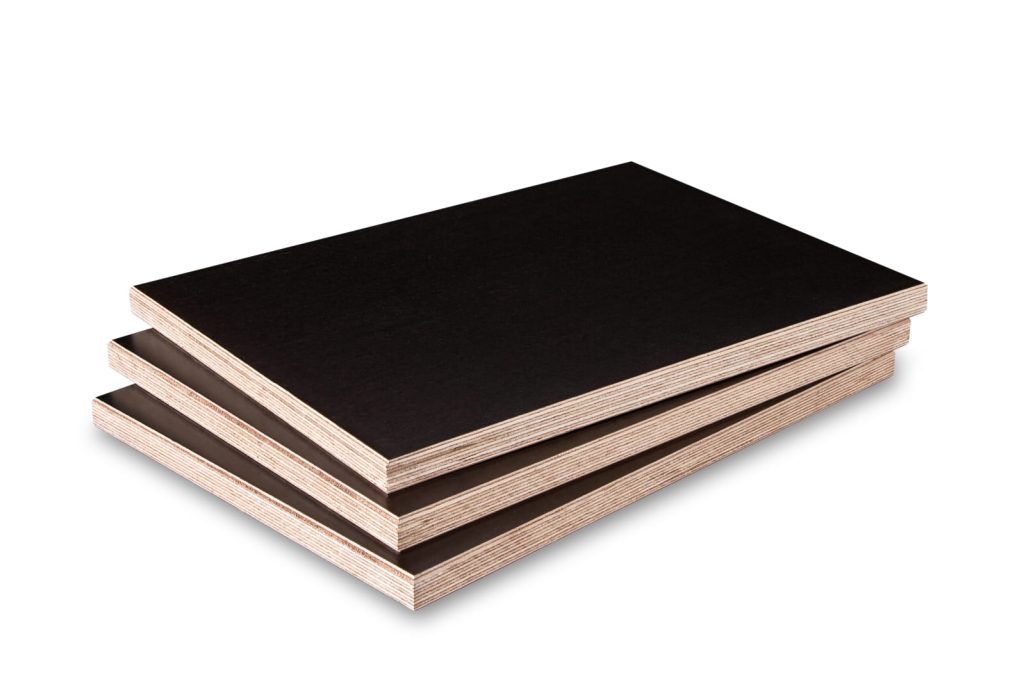We understand the importance of plywood in the construction sector and are delighted to offer you the most reliable and efficient solutions. By using plywood in your construction project, you can expedite your tasks, enhance safety, and optimize costs.





What is Plywood?
Plywood is a sheet material produced by bonding together wood fibers. It is a preferred material in many construction, furniture making, crafts, and decoration projects.
Plywood is created by assembling three or more thin wood layers with a special adhesive, placing them crosswise. Each layer is positioned at a specific angle to enhance surface smoothness and increase the material’s durability. One of the advantages of plywood is its homogeneous structure, along with being a cost-effective material.
Furthermore, it is suitable for various projects due to its availability in different thicknesses and sizes. Plywood is also easy to process and shape, providing designers and carpenters with broad creative freedom.
Its durability, resistance to moisture, and ability to withstand various weather conditions make it a popular choice for outdoor projects.
Feel free to fill out the practical form below to provide us with details regarding the product or service you need. This way, our expert team can take action to offer the most suitable solution. By receiving a price quote within the day, you can plan your budget in advance and explore our customized solutions for your needs. Take the first step and don’t miss the opportunity to evaluate our exclusive offers tailored just for you.
What are Plywood Prices?
Plywood prices can vary significantly depending on a number of variables. Prices may vary depending on many factors such as plywood type, quality, dimensions, brand, market conditions, region and supply chain factors. Quality plywood types are generally more expensive because they are more durable and functional. In addition, the type of plywood, the material used in the coating and water resistance also affect the prices. Local market conditions and the balance of demand and supply can also affect prices. Therefore, plywood prices constantly change depending on local conditions, rather than setting a clear price for a particular product. If you want to buy plywood, you can get more precise information by getting price quotes from our company and choosing the one that best suits your needs.
Which Factors Affect Plywood Prices?
There are many important factors affecting plywood prices, and the most important of these factors is the plywood type. Plywood can be produced from different tree species, and each tree species has different properties, durability and usage areas. For example, plywood made from birch wood can have a significant price difference compared to plywood made from poplar wood. Generally, the rarer or special the type of wood, the more expensive the plywood will be. Additionally, the type of coating and water resistance are other important factors that affect the price of a plywood product. Plywood consists of many layers, and the thickness of each layer determines the overall quality. Thicker layers indicate a stronger and more durable plywood product, which can increase the price. At the same time, the origin of plywood is another factor that affects the price. Plywood produced in some regions may be more expensive than others due to the quality of workmanship or raw materials.
What You Need to Know About Plywood Dimensions
Plywood dimensions are an important factor that determines the usage area of this versatile construction material. Standingard plywood sheets, usually available in dimensions of 122×244 cm, are used in many construction projects. However, plywood is available in different thicknesses and sizes, making it suitable for different applications. For example, while thinner plywood sheets are preferred for furniture making, thicker sheets are used for load-bearing structural elements. Plywood dimensions help you make the right choice to meet the needs of your project.
Plywood Types: Ideal Usage Areas
Plywood comes in a wide variety, and each type is designed to meet specific needs. While plywood is widely used in construction projects, MDF veneer plywood is preferred in furniture making. OSB plywood is ideal for surface coverings and floors. While ventilation plywood is used in projects that require air circulation, marine plywood is water resistant and used in marine applications. Thermal insulated plywood is used to save energy, while flexible plywood is useful for covering curved surfaces. Soundproof plywood is used in areas requiring sound insulation. While hardwood veneer plywood is used in decorative projects, pine plywood is preferred in various construction and carpentry works. Plywood types are selected according to the needs of your project and adapt to different areas of use.
How should plywood oil be chosen?
Plywood mold oils are an important element used to protect the plywood surface and to ensure that the concrete has a smooth surface. Quality molding oils generally provide excellent protection to wooden surfaces and help plywood last a long time. To achieve the best results, it is of great importance to choose a high quality and reliable plywood molding oil. In addition, correct application techniques, plywood type, climatic conditions and regular maintenance can also positively affect the results. The combination of these factors ensures that the use of mold oil is effective and long-lasting. A quality plywood mold oil is necessary to achieve successful results in mold works.
What is the weight of plywood? How many kg is 1 piece of plywood?
The weight of plywood may vary depending on many variables. Among these variables, the type of material used has a major impact. For example, while a lighter material is obtained with a plywood sheet depending on the type of wood, the use of different types of wood such as pine, birch or oak affects the weight of the plywood due to differences in their density. Additionally, the thickness and dimensions of the plywood also play an important role in determining its weight. A thin plywood sheet is lighter and easier to transport, while a thicker sheet is heavier and may require more labor during assembly. Therefore, the use of plywood in construction projects must be carefully planned to suit the needs and performance requirements of the particular project.




